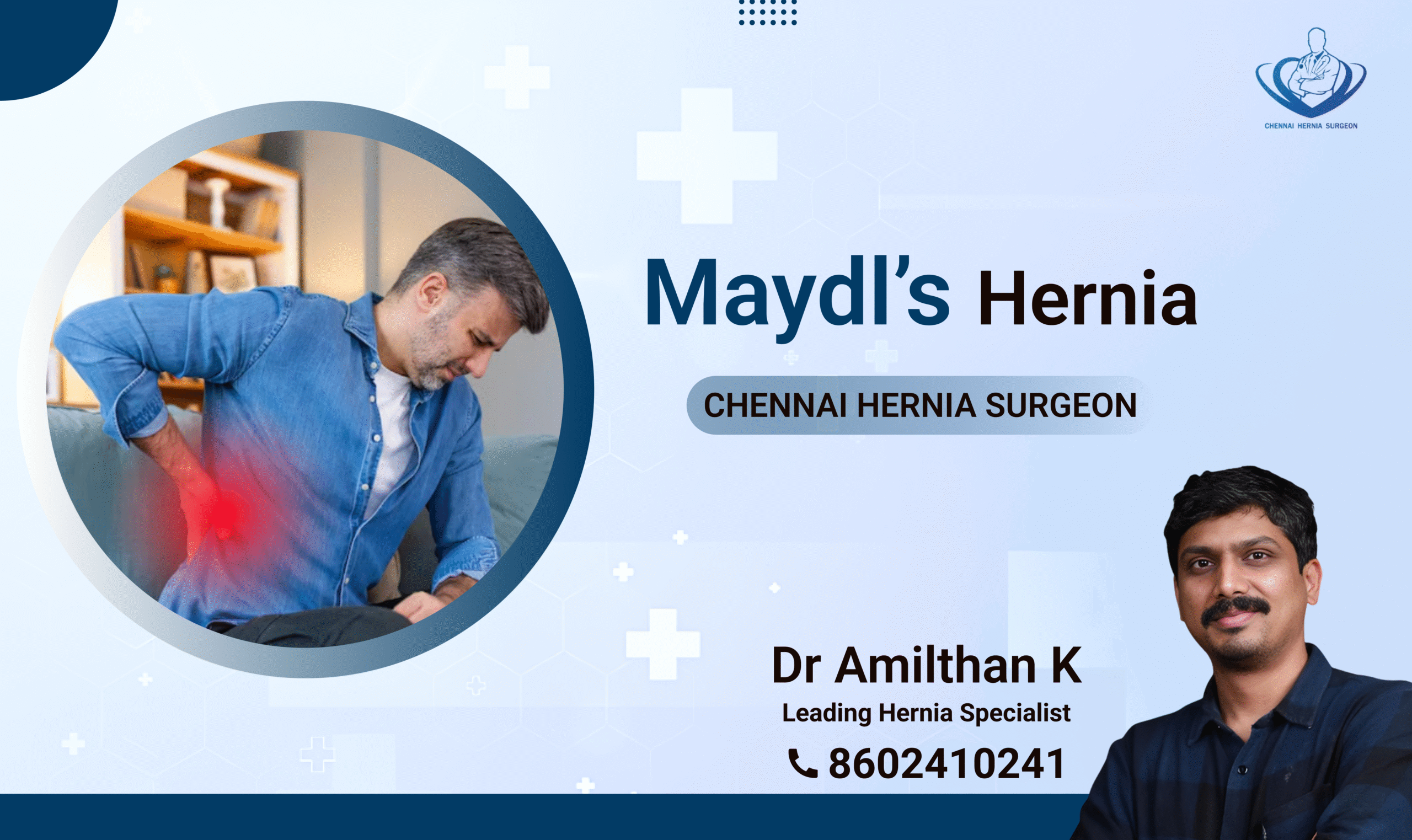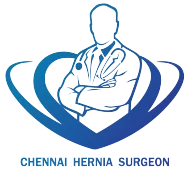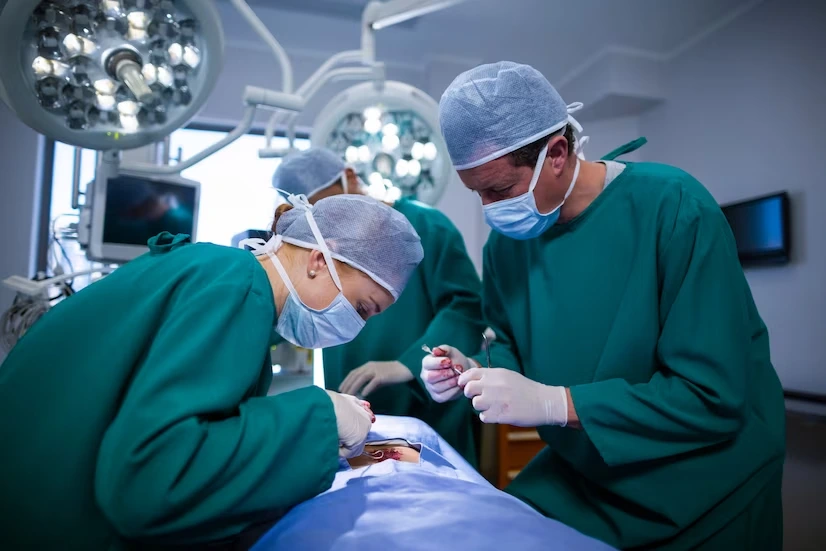Paraduodenal hernia is a common internal hernia that arises due to the protrusion of the small bowels through the openings in the peritoneum in the posterior abdominal wall.
It is difficult to diagnose a paraduodenal hernia and is often diagnosed after the obstruction of the small bowel.
The failed fusion of the left or transverse colon to the posterior abdominal wall during fetal development is the main cause of paraduodenal hernia.
Table of Contents
ToggleWhat is a Paraduodenal Hernia?
A paraduodenal hernia is an internal hernia that occurs as a result of an abnormal protrusion of the mesocolon into the fossa of Landzert or the fossa of Waldyer.
Paraduodenal hernias involve parts of the small intestine such as the duodenum, ileum, or jejunum herniating through weak spots or openings in the peritoneum present behind or near the duodenum.
Paraduodenal hernias cause rapid obstruction of the small intestine and must be treated immediately.
Types of Paraduodenal Henrias
Paraduodenal hernias are of two kinds:
- Left paraduodenal hernia
- Right paraduodenal hernia
Left paraduodenal hernias occur due to the protrusion of the left mesocolon into the fossa of Landzert and the right paraduodenal hernia occurs due to the protrusion of the mesocolon into the fossa of Waldyer.
Both left and right paraduodenal hernias are predominantly congenital with the left paraduodenal hernia having a higher rate of occurrence than the right paraduodenal hernia.
Paraduodenal Hernia Symptoms
Paraduodenal hernias can be symptomatic and asymptomatic. Some may encounter intermittent symptoms if the hernia is reducible.
Symptoms that paraduodenal hernias exhibit include
- Chronic or acute abdominal pain
- Nausea
- Vomiting
- Constipation
- Diarrhea
- Distension or bloating
Causes of Paraduodenal Hernia
Paraduodenal hernias are congenital in most cases. When the midgut or the intestines do not completely rotate during fetal development paraduodenal hernias may occur in later life. Malrotation of the midgut also may result in a paraduodenal hernia.
Another chief cause of paraduodenal hernias is the incomplete fixture or fusion of the mesocolon to the peritoneum at the back of the abdominal wall.
Paraduodenal hernias occur mostly in men and women over 40 years of age.
Paraduodenal Hernia Complications
The complications of a paraduodenal hernia include obstruction, strangulation, and bowel ischemia. These complications can be prevented if the paraduodenal hernia is diagnosed before the worsening of the hernia.
Paraduodenal hernias have a considerable mortality rate due to their delayed diagnosis and treatment. Reach out for medical help from expert radiologists to diagnose any hernia-related symptoms you experience and electively plan your hernia treatment to prevent any adverse consequences.
Paraduodenal Hernia Treatment
Paraduodenal hernias require surgery for a complete cure. You can choose to electively repair the paraduodenal hernia before it gets complicated.
Computed tomography (CT) scans are usually employed to diagnose internal hernias alongside assessment of physical symptoms. Exploratory laparotomy and laparoscopy are also employed to diagnose a paraduodenal hernia.
Based on the condition of the paraduodenal hernia, surgical challenges, patient health status, and surgeon’s preference, laparoscopy or laparotomy is opted to repair the hernia.
How to Prevent Paraduodenal Hernia?
Paraduodenal hernias are mostly congenital. However, you can adopt the following practices to prevent paraduodenal hernias in later life:
- Incorporate a fiber-rich diet
- Maintain a healthy BMI (Body Mass Index)
- Avoid smoking, steroids, and excessive alcohol
- Take medications for chronic coughing and constipation
- Avoid lifting heavy weights or straining yourself
- Do moderate exercises to strengthen your core
Conclusion
Paraduodenal hernias are the most common internal hernias. They can be treated electively with proper diagnosis and advanced hernia repair procedures.
The symptoms of a paraduodenal hernia may be non-specific at times and hard to diagnose. Yet, it is important to be cautious of hernia-related symptoms and get treatment as quickly as possible.
To know more about paraduodenal hernias and how to treat them for safer and quicker recovery consult a hernia specialist.
Dr. K. Amilthan MBBS., MS., FMAS., FALS.
Heal Your Hernia Now:
- 15+ Years of Experience
- 3,000+ Surgeries
Your Journey to Wellness Begins with us.
FAQ's
Paraduodenal hernias require surgery for complete recovery. Internal hernias as paraduodenal hernias escalate into severity very quickly. So, it is essential to repair a paraduodenal hernia via surgery even when it is manageable.
Laparoscopy or laparotomy surgery is usually employed to fix a paraduodenal hernia. You can manage a paraduodenal hernia without surgery as long as it does not get severe. But it is advisable to fix a paraduodenal hernia electively if diagnosed.
You can live with a paraduodenal hernia as long as it does not get complicated and cause strangulation or obstruction. A reducible paraduodenal hernia is manageable without surgery but an irreducible paraduodenal hernia demands immediate medical attention.

Dr. Amilthan
Dr. Amilthan is a renowned laparoscopic hernia surgeon based in Chennai, with over 15+ years of experience in general surgery. He completed his MBBS and MS in General Surgery at Kilpauk Medical College and Government Royapettah Hospital in Chennai.
- All Posts
- Hernia Blog

Which Doctor should you consult for Hernia? You can Consult a general surgeon or a hernia specialist for evaluation and...

A hernia occurs when an organ or any other part of your body pushes through the muscle and surrounding tissue...

An inguinal hernia occurs when the organs push through and bulge against the weak muscles of the abdomen. An effective...

